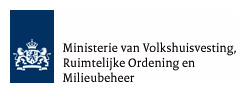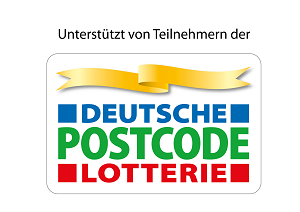EU Biocides Law Considered a “Standstill” by NGOs
A joint press release by WECF, HEAL and PAN Germany, UK and Europe
19.01.2012 | WECF Press Release
The regulation provides for the phase out of biocides that are carcinogenic, mutagenic, toxic to reproduction, disrupt the endocrine system or which are very dangerous to the environment (2). However, provisions on exemptions are wider than pesticide legislation agreed in 2009(3) and there are no plans to limit the use of biocides, say Pesticides Action Network (PAN) Germany, PAN Europe, PAN UK, Health and Environment Alliance (HEAL) and Women in Europe for a Common Future (WECF).
Susanne Smolka, a biocide expert at PAN Germany says: “We are very concerned that the exemptions and the lack of substitution plans leave the door open to the continued use of many hazardous biocides. Decisions on the continued use of hazardous biocides under exemption clauses are often taken behind closed doors. More transparency and full public involvement is essential to ensure that the exemptions will be strictly limited.”
The health and environmental groups are also disappointed with the failure of the new law to address the sustainable use of biocides in Europe.
“One of the greatest regrets is that a majority of Member States blocked mandatory measures to fill data gaps on market size, usage and biocide impacts and to establish a harmonised legal framework regarding the use phase. We call on the Commission to come forward as soon as possible with a report to start tackling the problem.”(4)
The size of the biocides market in the EU remains unknown and there is no requirement for this to change. Whereas the pesticides legislation set plans for more sustainable use of pesticide products and up-to-date statistics on sales and use, no similar demands have been agreed on biocides.
Health experts are worried that the regulation offers inadequate health protection.
“This regulation offers too little added value for public health especially given the scientific recognition of the likely risks of antibiotic resistance from unbridled growth in the use of biocides," says Anne Stauffer, Deputy Director of the Health and Environment Alliance (HEAL).
“We believe the public needs to be made more aware of the presence of biocides in their everyday life, such as certain indoor perfumed sprays, hand washes and cleaning products, and the alternative options,” she says.
“Some biocides contain endocrine disrupting chemicals for which there is growing scientific evidence of harm to health. These will not be phased out yet because the European Commission has still not defined criteria for identifying EDCs.”
“The regulation confirms many existing necessary conditions to protect health but with its exemptions and lack of set limits on the quantity of biocide use there are great risks that many safety benefits will be wiped out”, she added.
On the positive side, the Regulation will improve consumer rights through the implementation of new labelling provisions for nanobiocides and for products that have been treated with biocides. In addition, the regulation sets out new rules for a proper risk assessment of biocides containing nanomaterials. NGOs view this as a definite step forward compared to other existing legal approaches because it takes into consideration the novel properties and any possible new risks of nanomaterials.
Further comments by environment and health organisations:
“As of today, a majority of people are not aware of the presence of biocidal substances in everyday products they use: whereas the population is aware of risks linked to pesticides use, they lack basic information on what is a biocide, where it is found and how they are exposed to it. And yet, emerging health issues like antimicrobial resistance may be linked to an increasing use of biocides-containing products”, says Elisabeth Ruffinengo from WECF. “We hope that European consumers will make full use of the new labelling requirements to give a push for less harmful products and non-chemical alternatives. And we welcome that in accordance with the provisions set out in the new Regulation Member States shall provide appropriate information about ways of use and risk reduction for the public.”
“PAN Europe investigations have revealed that Member States make excessive use of “derogation and exemption clauses” under the EU pesticides legislation to continue to use hazardous pesticides that put environment and health at risk. With the new biocides law we should learn from these mistakes. This means full transparency in the decision-making process and guaranteed access to information for the public, so that they can have their say,” states Hans Muilerman from Pesticide Action Network Europe. “We also want to see such a broad involvement in the determination of EU EDC criteria, through for example taking into account independent, peer-reviewed science, something which is not guaranteed in the EU biocides law", he added.
The press release is downloadable here.
Notes for journalists
- A draft overall compromise package on the Regulation on the “Placing on the market and use of biocidal products” (repealing Directive 98/8/EC) was agreed by the Permanent Representatives Committee on 23 November 2011. After the 2nd reading plenary vote by the European Parliament today and the adoption by the Council, the new law will apply as of September 2013.
- Defined as “persistent, bio-accumulative and toxic” (PBT) and as “very persistent and very bio-accumulative” (vPvB).
- MEPs approve pesticides legislation (1107/2009/EC and 2009/128/EC) European Parliament, Press release, 13 January 2009: http://www.europarl.europa.eu/sides/getDoc.do?language=en&type=IM-PRESS&reference=20090112IPR45936
- The compromise was that the Commission must provide a report on how the new legislation contributes to the sustainable use of biocidal products three years after the Regulation comes into force. Only at that point could the Commission decide to put forward a legislative proposal on a Framework Directive on the sustainable use of biocidal products.
Further information
- Joint NGO recommendations for EP ENVI Committee's 2nd reading on the biocide regulation (COM (2009) 267), 06 September 2011: http://www.pan-germany.org/download/biocides/NGO_recom_biocide-regulation_110906.pdf
- PAN Germany (2011): Sustainable use of biocides in Europe – urgent need for action: http://www.pan-germany.org/download/biocides/briefing_sustainable_use_of_biocides.pdf
Contact:
Susanne Smolka, Biocide Coordinator Europe, Pesticide Action Network Germany,
Tel: + 49 40-399 19 10-24, E-mail: susanne.smolka@pan-germany.org
Anne Stauffer, Deputy Director, Health and Environment Alliance (HEAL),
Tel: +322 234 3644. Mobile: +32 473 711092 E-mail: anne@env-health.org
Hans Muilerman, Pesticide Action Network Europe,
Tel: +316 558 072 55, E-mail: hans@pan-europe.info
Elisabeth Ruffinengo, Women in Europe for a common Future (WECF),
Tel: +33 450 49 97 38 E-mail: elisabeth.ruffinengo@wecf.eu
Nick Mole, Policy Officer, Pesticide Action Network UK,
Tel: +20 7065 0905, E-mail: nickmole@pan-uk.org

































